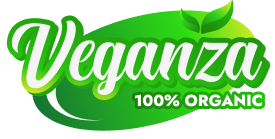A well-balanced vegan diet requires understanding the nutrients your body needs. Protein, iron, calcium, omega-3s, and vitamin B12 are essential for maintaining energy, bone health, and overall wellness. Learning plant-based sources of these nutrients ensures a healthy diet.
Incorporating a variety of foods daily helps meet nutritional needs naturally. Beans, lentils, tofu, nuts, seeds, leafy greens, and fortified plant-based foods are great options. Eating seasonal produce maximizes freshness and nutrient density.
Hydration and fiber intake are equally important. Fruits, vegetables, and whole grains support digestion and long-term wellness, while drinking enough water aids metabolic processes. Regular monitoring of nutrient intake helps prevent deficiencies.
Vegan nutrition is flexible and adaptable. With planning, even athletes or highly active individuals can meet their energy and protein requirements. Knowledge and variety in food choices make veganism sustainable and enjoyable.
Tips:
-
Include protein-rich plant foods in every meal.
-
Add fortified foods or supplements for B12 and iron.
-
Use seeds and nuts for omega-3 fatty acids.
-
Keep meals diverse to cover all essential nutrients.

